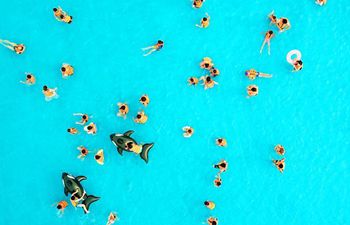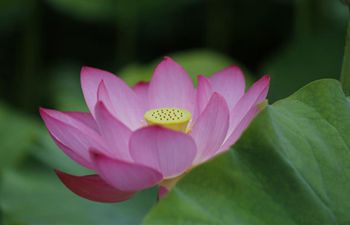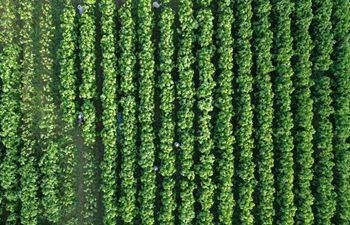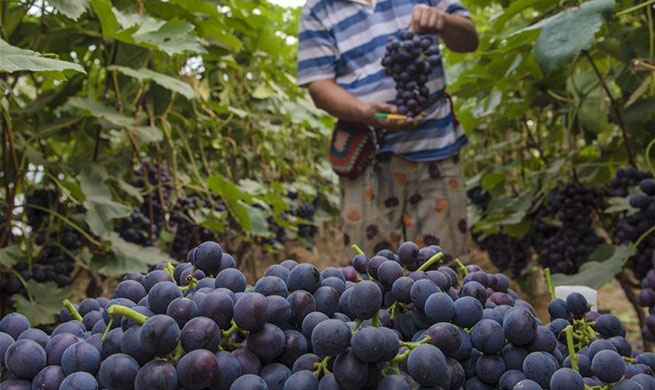SYDNEY, July 3 (Xinhua) -- A consortium of international scientists has cracked the koala's genetic code in a breakthrough for future conservation efforts.
The full koala genome sequence published may hold the key to saving one of Australia's most beloved creatures, which are threatened by habitat loss, population fragmentation and susceptibility to disease.
With over 50 scientists from over 20 countries working together for the past five years, mapping the 26,000 genes in the koala genome was no easy feat.
"If you had an entire encyclopedia and you chopped it up into 3.4 billion pieces, which is how many pieces we found in the koala genome, threw it on the floor and then had to blindly put it all back together so that it made sense -- mapping a genome is very much the same," director of the Australian Museum Research Institute and lead author of the study Professor Rebecca Johnson explained to Xinhua.
With only three other marsupials in history ever genetically sequenced, Johnson and her team had very little to use as a reference point, making the process excruciatingly difficult and extremely challenging.
Now, the koala's high-quality genome map means a brighter future for the species and a better chance at survival.
"We have been able to develop the markers that are linked to the genome and that can tell us all about the diversity of koalas," Johnson said.
"By looking at populations of koalas all over the country, including captive populations, we can ensure that they have lots of genetic diversity which is really important for conservation purposes."
On top of this, the project was able to identify particular immune genes which will hold great significance to scientists studying koala diseases.
"There are some groups just looking at the individual variation of the detoxification gene and there are other groups that are using the immune gene information to development a vaccine for chlamydia -- a disease that is devastating to the koala population," Johnson said.
The study also uncovered the secrets of the koala's strange diet, which consists of a limited range of eucalyptus leaves.
"The amount of eucalyptus would be toxic or fatal to most other mammals so the genome allows us to understand how they can do that," Johnson said.
"And that is through an expansion of a family of metabolic enzymes that effectively allow koalas to detoxify such a large amount of poison at a really great rate."
Johnson will now turn her attention to finding and adding more koala markers, in order to understand what the genetic diversity of the koala population looks like around Australia.
"Here at the museum we are really interested in the conservation genetics," she said.
"So we are adding an extra dimension to the bio sequencing with some very old specimens we have in the museum, up to 150 years old, so that we can identify if much diversity has been lost over time," Johnson said.
"Museum specimens are really good for understanding what the past looks like to make sure that we can make the best decisions for future conservation."

















